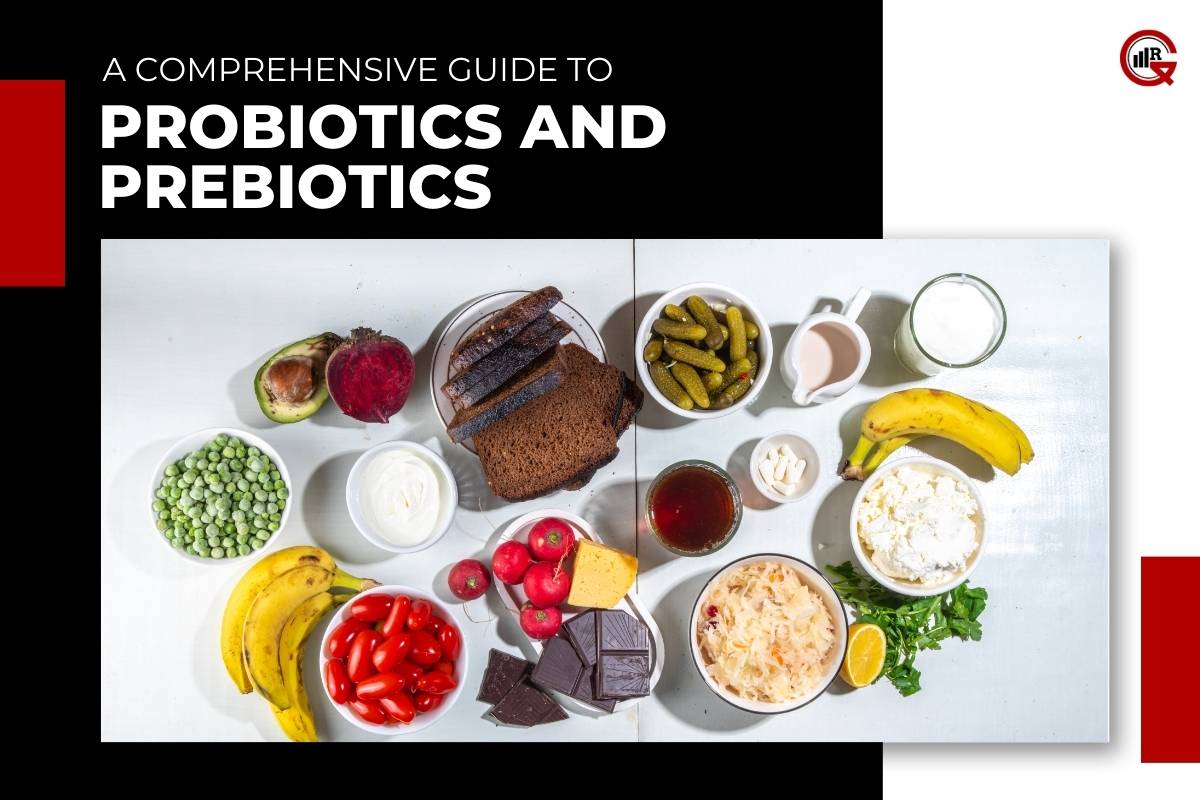In recent years, there has been a growing interest in the role of gut health in overall well-being, leading to increased attention to probiotics and prebiotics. These two components play crucial roles in maintaining a healthy balance of microorganisms in the gut, known as the gut microbiota. In this comprehensive guide, we delve into the world of probiotics and prebiotics, exploring their definitions, functions, sources, benefits, and the latest research in the field.
Understanding Probiotics and Prebiotics
Probiotics: Probiotics are live microorganisms, mainly bacteria and some yeast strains, that confer health benefits when consumed in adequate amounts. These beneficial bacteria colonize the gut and contribute to the balance of the gut microbiota, promoting digestion, nutrient absorption, and immune function. Probiotics are naturally found in fermented foods such as yogurt, kefir, sauerkraut, kimchi, and kombucha, as well as in dietary supplements.
Prebiotics: Prebiotics are nondigestible fibers or compounds that serve as fuel for beneficial bacteria in the gut, promoting their growth and activity. Unlike probiotics, prebiotics are not living organisms but rather substances that nourish the existing gut microbiota. Common prebiotic sources include fruits, vegetables, whole grains, legumes, and certain types of fiber such as inulin, oligofructose, and resistant starch.
The Gut Microbiota: A Key Player in Health

The gut microbiota, composed of trillions of microorganisms, including bacteria, viruses, fungi, and archaea, plays a critical role in maintaining gut health and overall well-being. These microorganisms interact with the host immune system, influence metabolism, produce essential nutrients, and help protect against pathogens. An imbalance in the gut microbiota, known as dysbiosis, has been linked to various health conditions, including gastrointestinal disorders, metabolic diseases, immune disorders, and mental health disorders.
Benefits of Probiotics
Digestive Health: Probiotics help maintain a healthy balance of gut bacteria, which is essential for proper digestion and nutrient absorption. They can alleviate symptoms of digestive disorders such as irritable bowel syndrome (IBS), diarrhea, constipation, and inflammatory bowel diseases (IBD) by restoring microbial balance and promoting gut motility.
Immune Support: Probiotics play a crucial role in supporting immune function by enhancing the production of antimicrobial peptides, stimulating the production of immunoglobulins, and modulating immune cell activity. Regular consumption of probiotics has been associated with reduced risk of respiratory infections, allergies, and autoimmune diseases.
Mental Health: Emerging research suggests a link between gut health and mental health, often referred to as the gut-brain axis. Probiotics may exert beneficial effects on mood, cognition, and stress response by modulating neurotransmitter production, reducing inflammation, and influencing the gut-brain communication pathways.

Weight Management: Some studies suggest that certain probiotic strains may aid in weight management by promoting the production of short-chain fatty acids (SCFAs), which regulate appetite, fat metabolism, and energy balance. Probiotics may also influence gut hormones involved in satiety and hunger regulation.
Benefits of Prebiotics
Gut Health: Prebiotics promote the growth of beneficial bacteria in the gut, leading to a diverse and resilient gut microbiota. By providing substrates for fermentation, prebiotics contributes to the production of SCFAs, which nourish colonocytes, maintain gut barrier integrity, and modulate immune function.
Blood Sugar Control: Certain types of prebiotic fibers, such as resistant starch and soluble fibers, have been shown to improve blood sugar control by slowing down the absorption of glucose and promoting the growth of beneficial bacteria that produce short-chain fatty acids.
Heart Health: Prebiotics may have beneficial effects on heart health by lowering cholesterol levels, reducing blood pressure, and improving lipid metabolism. The fermentation of prebiotic fibers in the colon produces SCFAs, which have anti-inflammatory and anti-atherogenic properties.
Bone Health: Prebiotics may support bone health by enhancing calcium absorption in the gut and modulating the gut microbiota composition. Some studies suggest that prebiotic supplementation may improve bone mineral density and reduce the risk of osteoporosis.
Synergy between Probiotics and Prebiotics

Probiotics and prebiotics work synergistically to promote gut health and overall well-being. This synergistic effect, known as synbiotics, involves consuming a combination of probiotics and prebiotics to enhance the survival and activity of beneficial bacteria in the gut. By providing a source of nutrients for probiotic bacteria, prebiotics help improve their viability and colonization in the gut, leading to greater health benefits.
Challenges and Considerations
Strain Specificity: Different probiotic strains have distinct effects on gut health and may vary in their efficacy for specific health conditions. Choosing the right probiotic strain or combination of strains is essential for achieving desired health outcomes.
Survival and Viability: Probiotic bacteria are sensitive to environmental factors such as temperature, pH, and oxygen exposure, which can affect their survival and viability during storage and digestion. Encapsulation techniques and protective coatings are used to enhance the survival of probiotic bacteria in dietary supplements.
Individual Variability: The response to probiotics and prebiotics may vary among individuals due to factors such as genetics, diet, lifestyle, and gut microbiota composition. Personalized approaches to probiotic and prebiotic supplementation may be needed to optimize health benefits for each individual.
Dosage and Duration: Optimal dosage and duration of probiotic and prebiotic supplementation depend on the specific health condition being targeted and individual factors. Clinical studies are needed to determine the most effective doses and treatment regimens for different populations.
Conclusion: Nurturing Gut Health with Probiotics and Prebiotics
In conclusion, probiotics and prebiotics play integral roles in maintaining gut health, supporting immune function, and promoting overall well-being. Incorporating probiotic-rich foods such as yogurt, kefir, and fermented vegetables, as well as prebiotic-rich foods such as fruits, vegetables, and whole grains, into the diet can help optimize gut microbiota composition and function. Additionally, dietary supplements containing probiotics and prebiotics offer convenient ways to augment gut health and address specific health concerns. By understanding the synergistic relationship between probiotics and prebiotics and harnessing their combined benefits, we can nurture our gut microbiota and pave the way for a healthier future.






